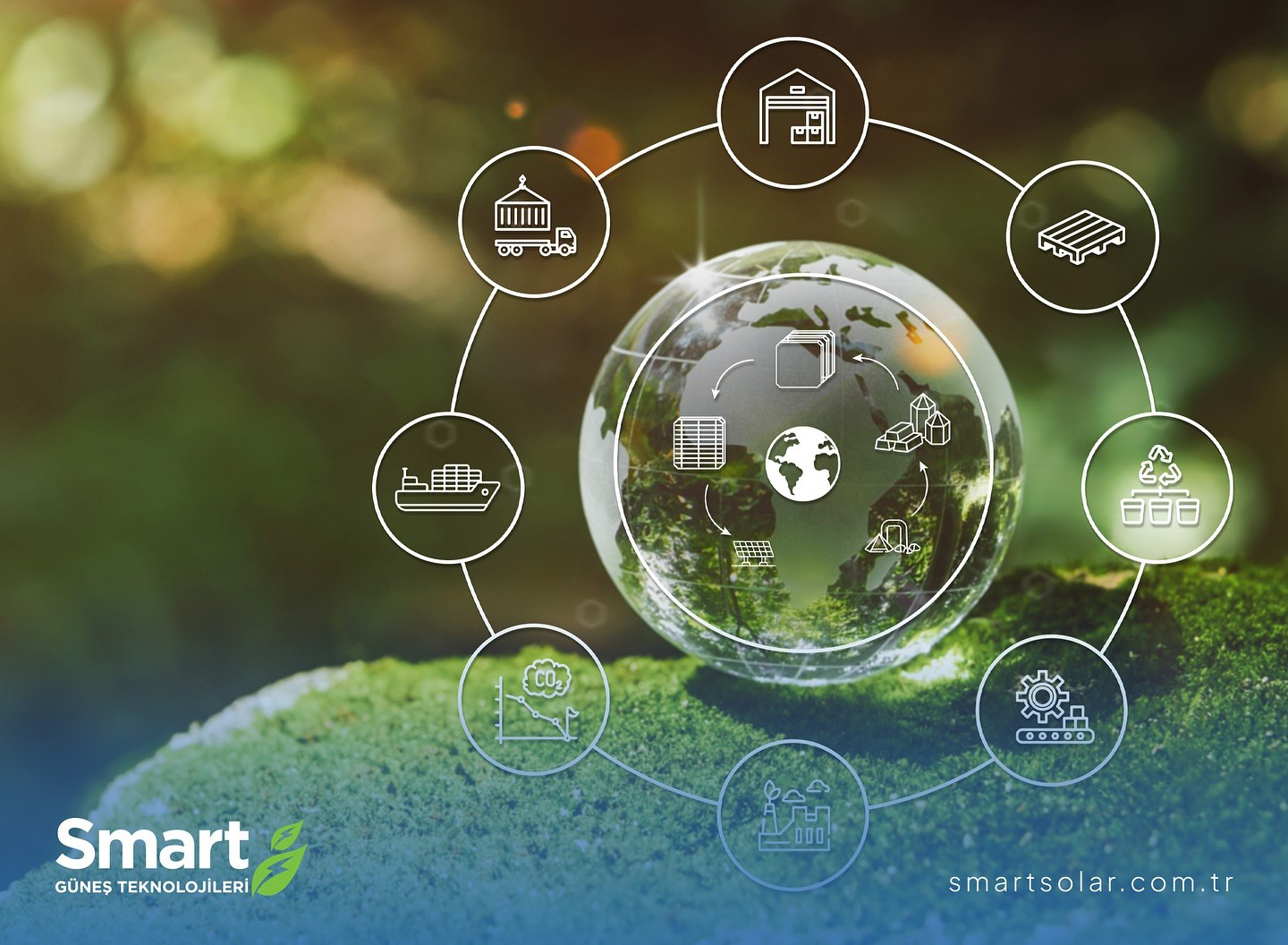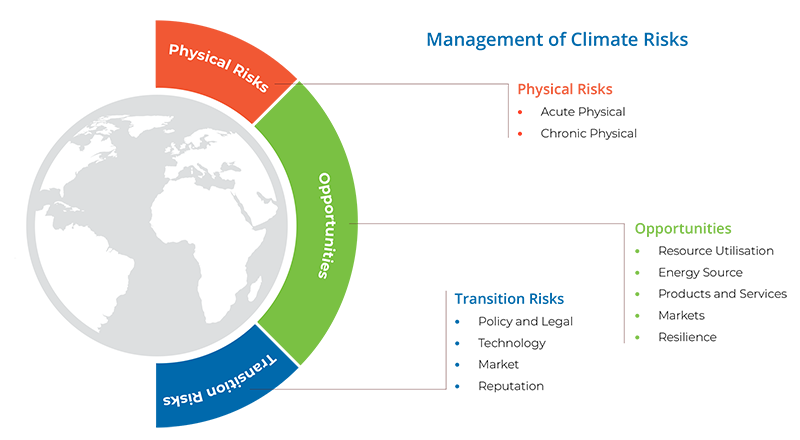Our Sustainability Strategy
As Smart Solar Technologies, we work with a sustainability focus and a business model that is sensitive to the environment and the future. We carry out our activities with the aim of becoming a successful global leader that develops the most advanced technologies in order to contribute to the sustainable growth of our country.
In this journey we embarked on with the slogan “Faces to the Sun”; the concept of sustainability has become the fundamental element of our Company's corporate approach.
As Smart Solar Technologies, we are committed to the United Nations Sustainable Development Goals (SDGs) in our sustainability journey. We continue our work towards our goals of combating climate change, increasing renewable energy resources and minimizing our environmental impact.
We focus on reducing our carbon footprint by increasing water and energy efficiency in our production processes and improving waste management with circular economy principles. In line with these goals, we continue to develop innovative solutions to achieve our commitment to net zero emissions by 2040.
Sustainable Development Goals (SDGs) – Our Prioritization Study

At Smart Solar Technologies, a comprehensive task distribution has been created to manage sustainability processes at strategic and operational levels. This structure starts from the Board of Directors and extends to operational units and includes units such as ESG Risk Management, Sustainable Supply Chain, Environmental Management System and factory organizations. All these units operate under the Sustainability Unit of the Office of the Chairman of the Board of Directors.
The Sustainability Committee, established in 2022, plans and executes sustainability activities within the company in coordination with senior management. The Committee undertakes fundamental duties such as:
• Observing environmental, social and corporate governance principles,
• Creating necessary corporate policies and making them operational throughout the company,
• Monitoring and enforcement of compliance with these policies in accordance with the Sustainability Principles Compliance Framework published by the Capital Markets Board in 2022.

Within the scope of our sustainability-focused business model, we started a new project to create a sustainable supply chain in 2023. We attach great importance to the fact that the companies in our supply chain have the same values and awareness about sustainability as Smart Solar Technologies.
We continue our commitment to ensuring that operations in our supply chain are carried out in a manner that respects human rights and the environment; we evaluate the status of our suppliers according to the Smart Supplier Code of Conduct, which we have prepared in accordance with the ten principles of the ILO and the United Nations Global Compact.
We map the companies in our supply chain, conduct risk assessments and then conduct audits within the scope of the Supplier Code of Conduct. In addition, we carry out supplier improvement studies in order to contribute to the sustainability development of our suppliers.
Environmental Management System

Smart Solar Technologies has established an Environmental Management System that is valid throughout the company within the scope of its sustainability management system. This system is actively implemented to raise environmental management awareness throughout the company, improve technical competencies and promote sustainable practices.
The Environmental Management System is used as a basic tool to improve the environmental performance of the company and regular training and awareness activities are carried out within this framework.

We manage climate risks in an integrated manner by including them in the company's corporate risk inventory. We analyze different scenarios related to the climate crisis and their potential impacts on the sustainability of our business and implement the necessary action plans. We periodically conduct workshops with Finance, Procurement, Risk Management, Investor Relations and Sustainability teams to assess climate-related risks and opportunities.
